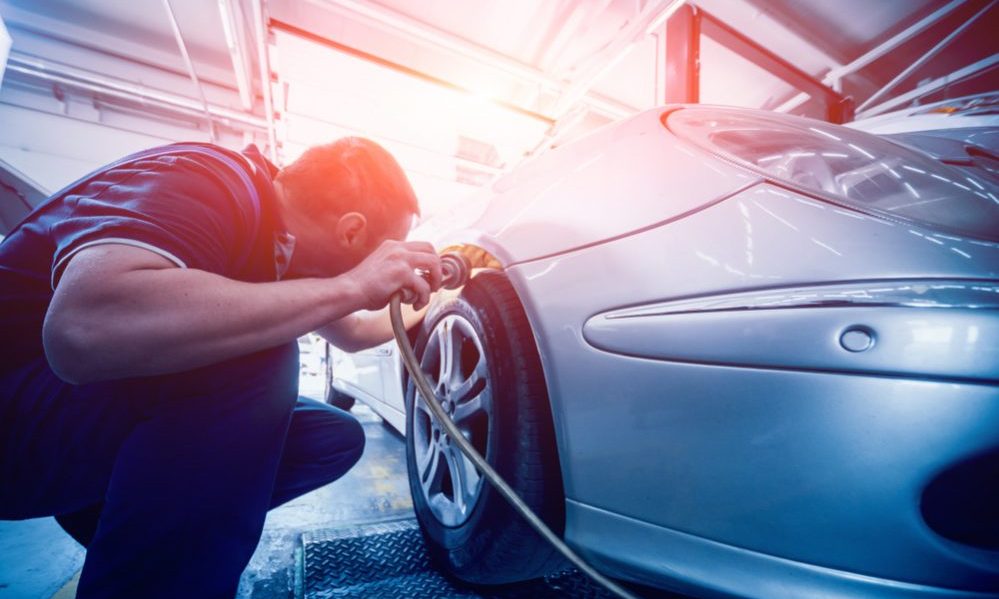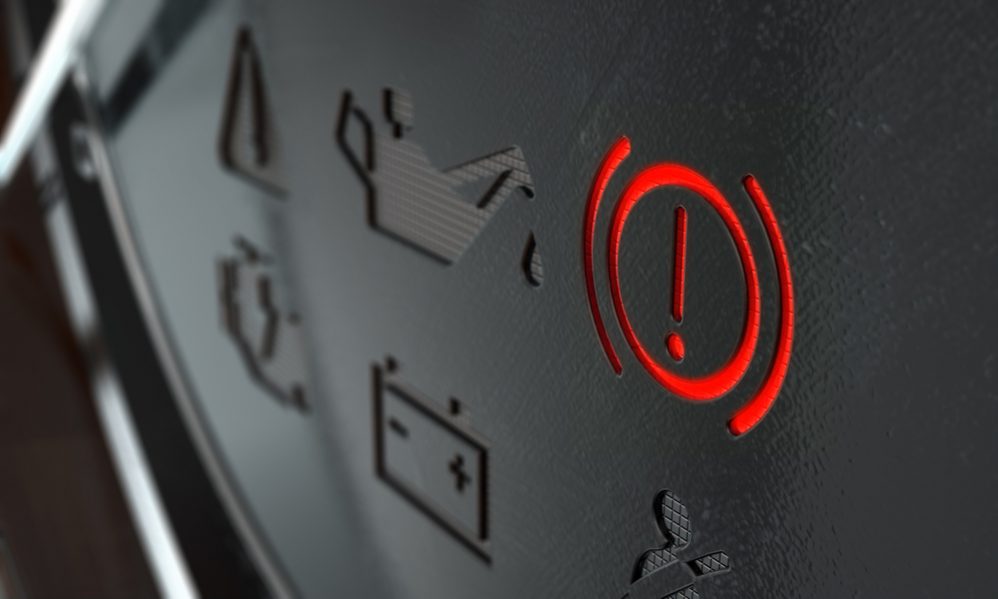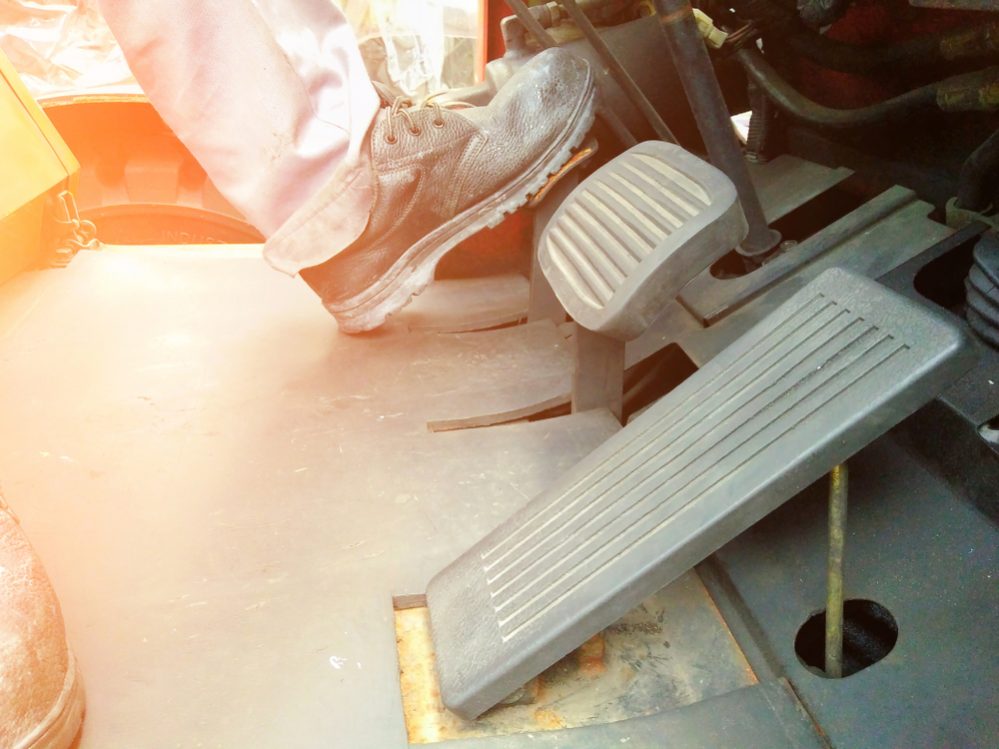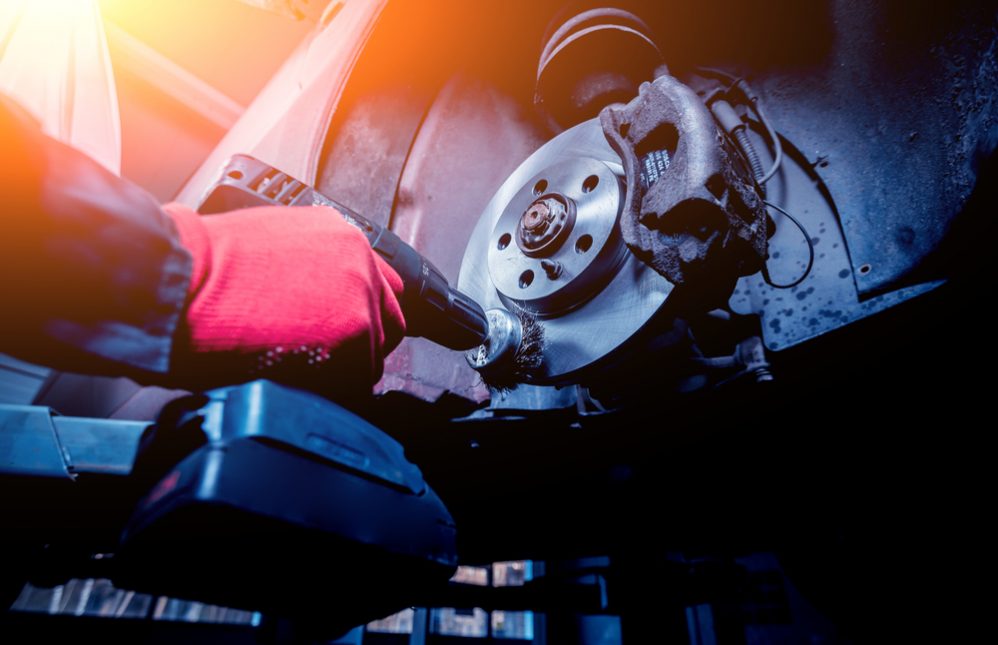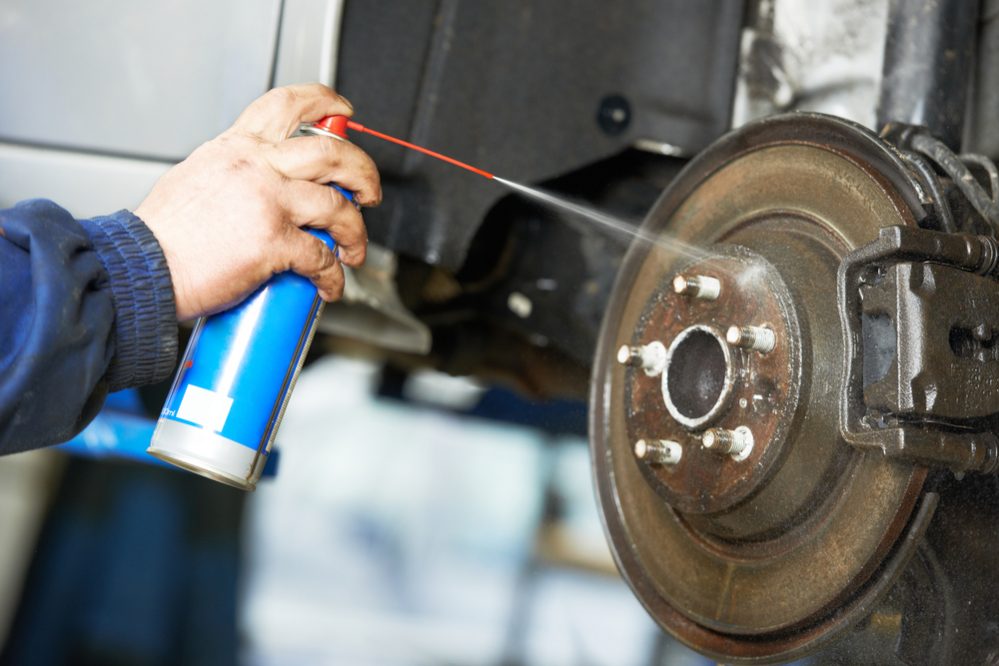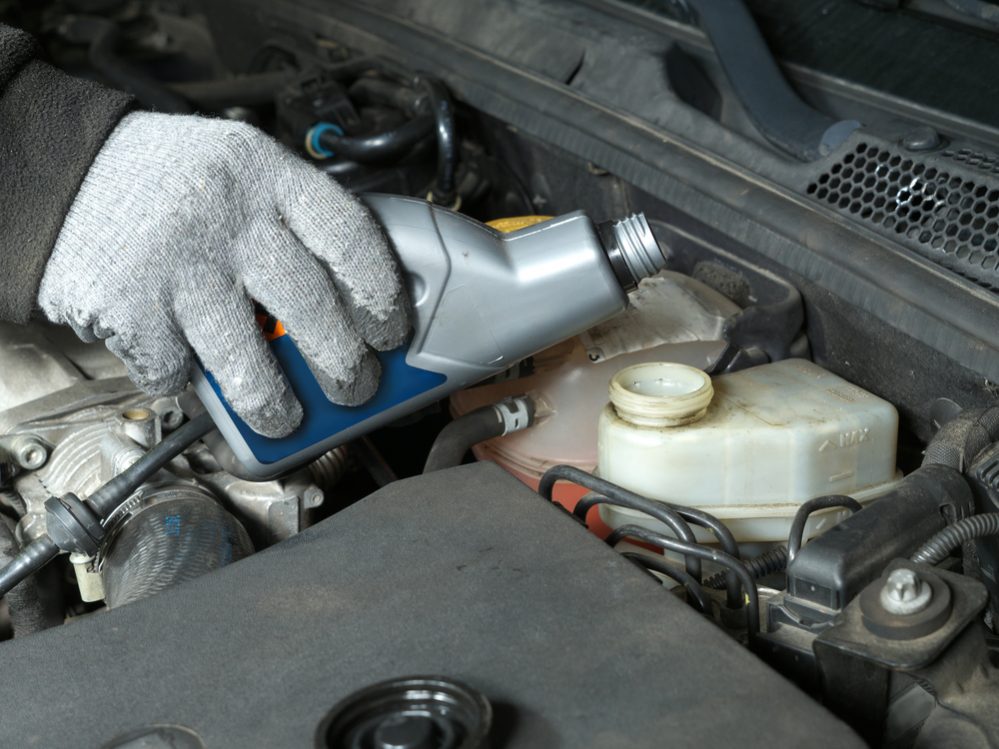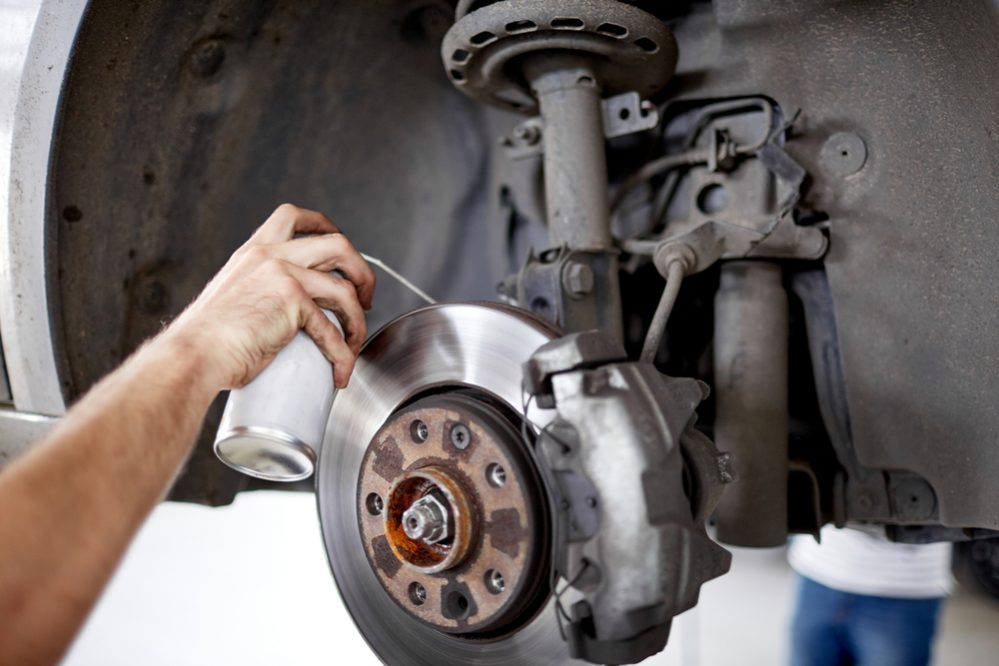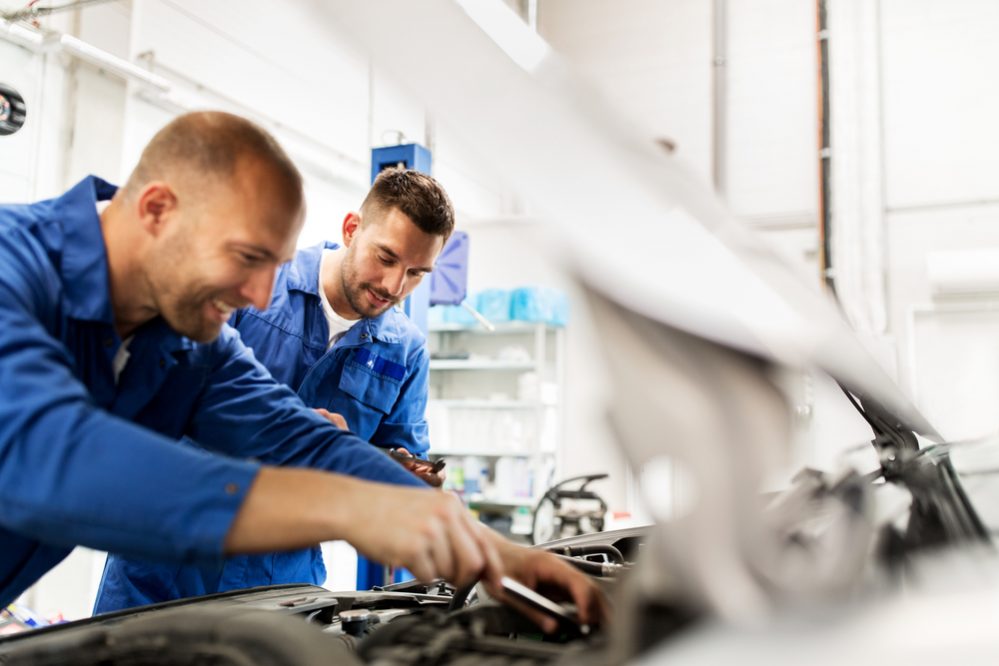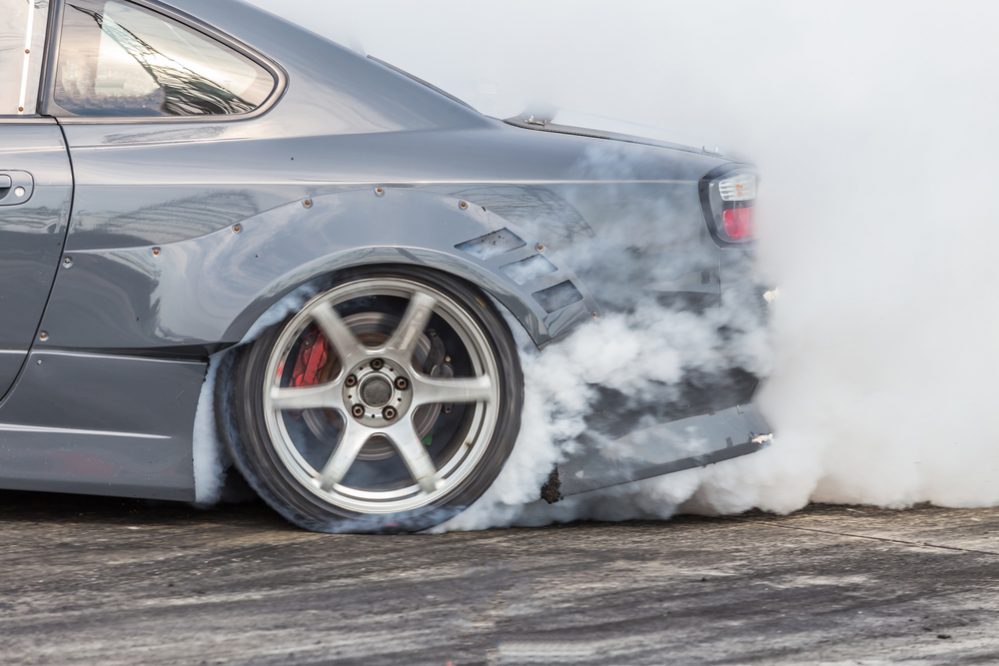It’s a fact of car ownership that the miles you put on the clock gradually cause the different parts of your car to wear down, and eventually they need to be serviced or replaced. One part of your car that needs regular checks and servicing are your brakes. Here are 7 brake problems you might face.
1. Brake light comes on
If your brake light comes on, there are a couple of possibilities. One is easily rectified but the other could be an indication that there is a serious problem and you need to have your brakes checked as soon as possible.
When you start your car, the lights on the dash come on. This is normal – it’s a bulb test to make sure the lights are all in working order. When you start your car, if the lights don’t come on, it’s a sign you should have the bulbs changed.
However, after a few moments, if all is well, they should go off again.
If the brake light stays illuminated, the most likely cause is that your handbrake is on, and once you release it, the light should go off. If it doesn’t, it could be an indication that there really is a problem.
If the light isn’t caused by the handbrake being engaged, it could be a message that your brakes are due for an inspection. In this case, you should book your car in with a mechanic.
However, it could also mean that there is an issue with the pressure in the braking system due to a leak or because the hydraulic fluid is low. Again, in this case, you should plan to have your brakes checked ASAP.
In order to have precise instructions, it is advisable to consult the owners’ manual or utilize the Dash Lights Lookup Tool.
2. Soft brake pedal
A soft or squishy-feeling brake pedal or one that offers little resistance can be an indication of a serious problem. If your pedal goes all the way to the floor when you put your foot on it, you should stop driving the car and have it looked at – your brakes may be about to fail altogether.
The most likely cause is a leak from the master cylinder or somewhere else in the braking system. You can physically check the master cylinder for leaks, but this might not confirm or deny the problem.
In any case, if you encounter this issue, you would be risking your life and the lives of others if you continue driving. You should arrange for a professional to check it out before you drive the car again.
On the other hand, if you notice that your brake pedal is just beginning to feel a little softer than normal but doesn’t yet reach anywhere near the floor, this could also be the first sign of brake pad wear.
This is a less dangerous situation, but that doesn’t mean you should hesitate in having it looked at. Your brakes are what keep you safe – and at the very least, having the brake pads replaced early enough will prevent you from damaging other parts that are far more expensive to replace.
3. Screeching, screaming or squealing brakes
Brake pads contain metallic indicators that are designed to tell you when your brake pads are nearing the end of their lives and need to be changed.
Essentially, brakes are supposed to squeak to give you an early warning that you need to take action. When you wear the brake pads down to this stage, the indicator presses against the rotor, letting you know the brake pads are ready to be replaced.
If you take steps when this happens, you will save yourself a much more expensive repair job later since if the brake pads wear down completely, you may end up damaging the rotor itself. This is not something you want to be paying to fix.
If the sound is something more like a grinding noise than a squeal, it could be no more than a piece of stone stuck in the caliper – which is easy enough to remedy – or it could be an indication of something more serious.
If it is not being caused by a stone in the caliper, a grinding noise can be a sign that the brake linings are excessively worn. This means you are potentially doing damage to your car that will cost a lot of money to put right.
In either case, having a professional check it out as soon as you can is the smart course of action.
4. Vibrating brake pedal or steering wheel when braking
This is a common problem and can come from several causes, all related to slight defects or deformations of the rotors.
If the front rotors become warped or have other irregularities, it can cause this kind of vibration when you apply the brakes.
Another cause might be pad impressions – this is where the car sits for a while and the rotors begin to rust. The place where the pads sit is protected from the rusting, and this will cause the rotors to become uneven.
Rotor surfaces can become uneven for several other reasons, but whatever the root cause, the result will be the same: vibrations when braking.
Bear in mind that we are talking about tiny differences that would be all but imperceptible to the naked eye. However, since the wheels are rotating at such high speeds, even this tiny difference will cause this effect.
The easiest solution, if you catch the problem early enough, is to have the rotors resurfaced. This is the less expensive option, but if the rotors are already worn to beyond their minimum thickness, they will need to be replaced – something that will cost you quite a bit more.
This means that the best advice is to have your brakes checked out at the earliest opportunity as soon as you notice a problem.
5. Car pulls to one side when braking
If your car is pulling to one side when you apply the brakes, the most likely culprit is going to be one of the calipers.
The calipers are responsible for applying pressure that slows and stops the car, and if your car begins pulling to one side during braking, the chances are that the calipers are not applying pressure evenly.
At first, if the problem is not too pronounced, it can be something of an annoyance; if it becomes more marked, it can develop into a more dangerous issue, especially in a situation that requires you to break sharply in an emergency.
Calipers begin to exert uneven pressure when they become stuck due to dust, debris or water finding its way inside. It can also be caused by rust. The problem can also come from the piston or the caliper slide pins.
Since this issue won’t go away on its own and, as we’ve already mentioned, it can make driving the vehicle dangerous, as always, the best thing to do is to take the car to a mechanic for a brake check.
A professional will be able to determine exactly why your car and its brakes are misbehaving and fix it for you before the problem gets any worse.
However, there is another possibility. This problem could be related to your front tires and nothing to do with your brakes at all.
Braking shifts extra weight onto the front wheels, and the effect of having uneven tread on your tires that you might not notice during normal driving will be amplified when you hit the brakes.
For this reason, you may also wish to have a look at the condition of your front tires before heading to your local garage with a suspected brake issue. If this is the cause of the problem, rotating the front and back tires will solve it for the time being.
6. Burning smell when braking
If you start to smell a nasty acrid burning smell when you are breaking, this could be a sign that your braking fluid is starting to overhead.
This is especially likely when driving conditions cause you to use the breaks a lot – for example when driving in the mountains or when driving downhill.
Although this is not a pleasant experience – and can be quite worrying if you don’t know what is causing the smell – the good news is that is probably won’t result in long term problems.
If your brake fluid starts overheating, all you need to do is pull over and let it cool down, so find somewhere safe and give your brakes a rest. Once the brake fluid has had time to cool down, you’ll be ready to go again.
To prevent the problem from happening again, try to lay off the brakes a bit and approach the corners a bit slower, for example.
If you do start detecting a bad smell, it is very important that you don’t simply continue driving, however. If the brake fluid continues to heat up and reaches boiling point, your brakes will fail.
This would be a problem at any time but is likely to be particularly dangerous in places where you are using your brakes enough to cause this to happen in the first place.
If you start to detect this kind of odor under more normal driving conditions or if it continues after taking a break, the problem may lie elsewhere. In this case, you should take your car to a garage for a check-up at the earliest possible opportunity.
7. Bouncing when braking hard
One fairly common problem that you may encounter is that your whole car vibrates or shakes when braking, especially when braking hard.
Since this problem occurs when braking, you might reasonably suspect that the problem is related to your braking system – but in reality, it is probably more likely to be a question of your shock absorbers getting old.
Again, the best thing to do is to have your car checked out to establish why it has the problem and to have it fixed.
General advice
Here, we have discussed the major, most common problems you are likely to encounter as well as the probable causes. However, there a so many reasons your brakes can start squeaking, crunching, giving off a bad smell or even smoking.
For this reason, unless you are a very confident and competent mechanic, the best option is to always get your brakes checked out at the earliest opportunity.
In almost every case, catching the problem early will mean it costs you less to fix, while leaving it too long may land you with a much larger repair bill.
Furthermore, since your brakes are absolutely vital to your safety and experiencing brake failure at the wrong time can be extremely dangerous – and even life-threatening – you shouldn’t take any chances with them.
Making sure you have your brakes checked and serviced regularly will save you money in the long run and will help keep you safe on the road.
How to extend the life of your brakes
There are some quite simple things you can do to extend the life of your brakes that will also mean you won’t need to spend as much money on keeping them in good working order.
For example, think about how you drive. If you drive fast and then brake sharply, you are putting extra pressure on your brakes and will wear the brake pads down more quickly. Driving in a more measured way will give your brakes a longer lifespan.
Don’t drive with your foot on the brake pedal the whole time. This kind of unnecessary braking quickly builds up over time, and again, will wear your brake pads down much faster.
As a rule, aggressive driving is the perfect way to shorten the life of your brakes.
Finally, cut down on any extra weight in your car. It is quite logical – although many people might not think of it – that extra weight puts more pressure on the brakes and wears them out quicker. Don’t drive around with heavy stuff in the back of your car if you don’t need it.
Act early and save yourself some money
With just about any problems your car can have, the general rule is that the quicker you get it checked, the less it will cost to repair. This is as true with brakes as anything else – but your braking system is also one of the most important safety features, so if in doubt, have it looked at.
